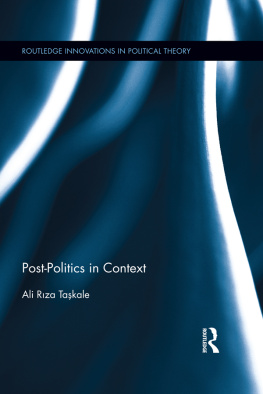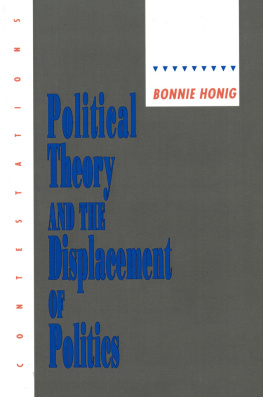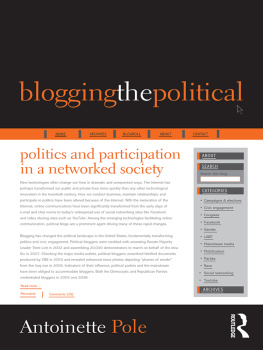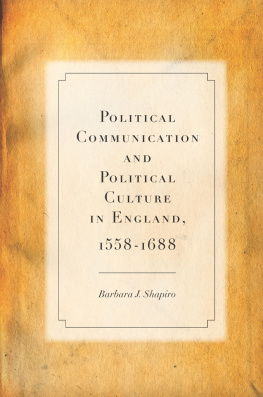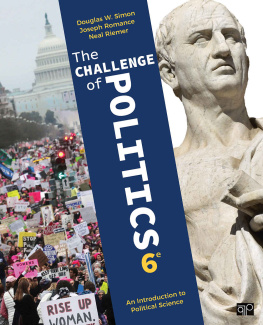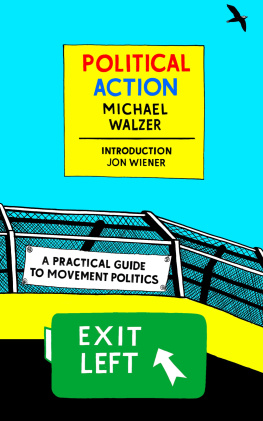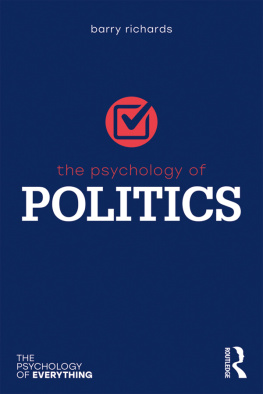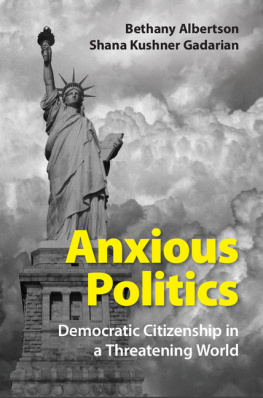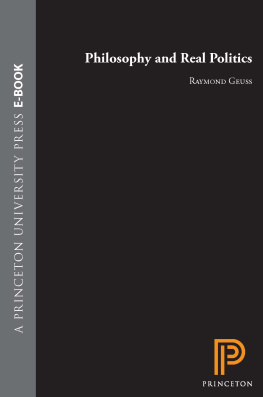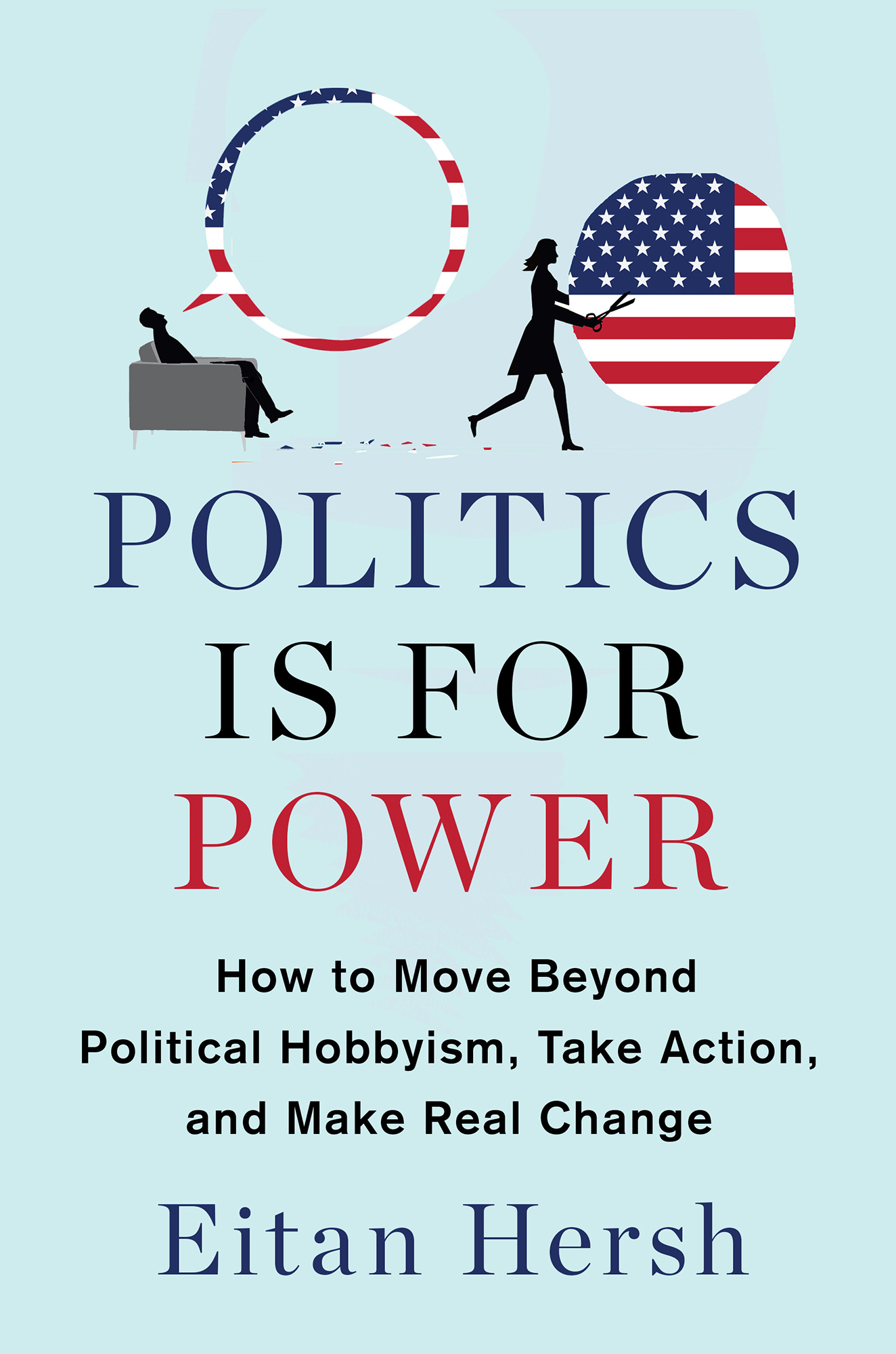Contents
Guide

Scribner
An Imprint of Simon & Schuster, Inc.
1230 Avenue of the Americas
New York, NY 10020
www.SimonandSchuster.com
Copyright 2020 by Eitan Hersh
All rights reserved, including the right to reproduce this book or portions thereof in any form whatsoever. For information, address Scribner Subsidiary Rights Department, 1230 Avenue of the Americas, New York, NY 10020.
First Scribner hardcover edition January 2020
SCRIBNER and design are registered trademarks of The Gale Group, Inc., used under license by Simon & Schuster, Inc., the publisher of this work.
For information about special discounts for bulk purchases, please contact Simon & Schuster Special Sales at 1-866-506-1949 or .
The Simon & Schuster Speakers Bureau can bring authors to your live event. For more information or to book an event, contact the Simon & Schuster Speakers Bureau at 1-866-248-3049 or visit our website at www.simonspeakers.com.
Jacket design by Jaya Miceli
Jacket artwork by Dane_Mark / Getty Images
Library of Congress Cataloging-in-Publication Data has been applied for.
ISBN 978-1-9821-1678-1
ISBN 978-1-9821-1680-4 (ebook)
For Julia
Introduction
J une 2019. On a Wednesday evening with dry summer weather, a volunteer political organization is holding its monthly meeting. Lemonade and cookies are set up in the back of a borrowed meeting room. A few young children mill around as fifty adults make their way to large round conference tables. This organization, like similar ones around the country, was formed in the aftermath of the 2016 election to support Democratic candidates and progressive causes. Its now planning its next moves.
The meeting is taking place a few blocks from the center of town in Greensburg, Pennsylvania, an hour southeast of Pittsburgh. Greensburg is the seat of Westmoreland County. Over the past twenty years, Westmoreland has gone from a politically split county to a Republican stronghold. Two out of every three of the 182,000 votes cast in 2016 went to Donald Trump.
The monthly meeting is a temporary liberal oasis here. A few dozen people with left-leaning policy views briefly enjoy a sense of camaraderie that they rarely get to experience outside this room. Everywhere else they gowork, church, school, among their neighborstheir political views are abnormal.
One man, a new face to the group, lingers at the back of the room. He seems apprehensive, and serious, maybe sad. I later learn he was one of those two out of three voters in the county who supported Donald Trump for president in 2016. Hes about fifty years old and has a thick beard. He wears a T-shirt with a slogan that professes his love of drinking. He chooses the rearmost chair at the rearmost table and sits down. When he sits down, I notice that he is drinking a glass of wine. I notice because wine is not being served at this meeting. At some point, he has left the room and come back with a full, stemless glass, now taking slow, deliberate sips as the leaders in front make announcements.
Soon, a young organizer facilitates a discussion at the back table where the man sits. The organizer asks all at the table to introduce themselves. When his turn comes, the man says hes a Republican and a Christian, as well as the father of a child serving in the military. He also says hes pro-life.
A couple of people shift in their seats, unsure where this introduction is going, worried that this rare hour in which they are surrounded by fellow liberals is about to be disrupted.
The man continues, almost mournfully, Im a Christian, and theres no such thing as a racist Christian. Thats why hes here, he explains. He feels that his own small community is going down a path of hatred and, as a Christian, he needs to take a stand. Even though he disagrees with the other people in this room issue by issue, he says, hes here to learn about this group and maybe to contribute to its work. Hes here because Donald Trump doesnt represent his Christian values. He offers advice about how the group can better approach people who are like him. He remains visibly uncomfortable through the whole meeting, but the group is glad he came. They welcome him. He has traveled a long political distance to be here this night.
His presence is not an accident; its a triumph. The groups leaders have been working for over two years, slowly building support and training volunteers to win over people exactly like this man. In a county that could hardly be more hostile to their views, they have had a remarkable string of successes, as we will see. The successes were hard-earned through many evenings of their lives, miles of door-to-door canvasses, and stumbling blocks along the way as they learned how to build an organization from scratch. They did this workand continue to do itfor one reason:
They want power.
When ordinary Americans volunteer in politics, they are trying to acquire power. Each voter they convince is a small piece of that power. Accumulated votes translate into politicians and policies advancing their values. If the group in Westmoreland County can convince this man to join themif they can help him convince other members of his family and religious network to vote a certain waythe group might be able to change dozens of votes that they couldnt change without him.
Each vote may seem like an insignificant drop in a 135-million-vote bucket, but the group labors with the knowledge that it is working in concert with like-minded organizations across the state and country each doing its part. The group also knows, and sees, that opposing groups, with very different values, are also getting supporters for the other side. They are in a pitched battle with one another, each seeking political control.
What theyre all doing, thats politics.
I often think of groups like this in evenings on my couch. A pile of laundry sits next to me. Over some two hours I fold it half-heartedly as I watch TV and clutch my phone. I refresh my Twitter feed to keep up on the latest political crisis, then toggle over to Facebook to read clickbait news stories, then over to YouTube to see a montage of juicy clips from the latest congressional hearing. I then complain to my family about all the things I dont like that I have seen.
What Im doing, that isnt politics.
What Im doing I call political hobbyism, a catchall phrase for consuming and participating in politics by obsessive news-following and online slacktivism, by feeling the need to offer a hot take for each daily political flare-up, by emoting and arguing and debating, almost all of this from behind screens or with earphones on. I am in good company: these behaviors represent most of the ways that most politically engaged Americans spend their time on politics.
In 2018, I asked a representative sample of Americans to estimate about how much time they spend on any kind of political-related activity in a typical day. A third of Americans say they spend two hours or more each day on politics. Of these people, four out of five say that not one minute of that time is spent on any kind of real political work. Its all TV news and podcasts and radio shows and social media and cheering and booing and complaining to friends and family.
Political hobbyists tend to be older than the general public, though they are found in all age groups. They are disproportionately college educated, male, and white. In the current climate, theyre more likely to be Democrats than Republicans or independents. Not only are they different from the general public, they also have a different profile from people who engage actively in political organizations. For example, of the people who spend two hours a day on politics but no time on volunteering, 56 percent are men. But of those who spend that much time on politics, with at least some of it spent volunteering, 66 percent are women.


